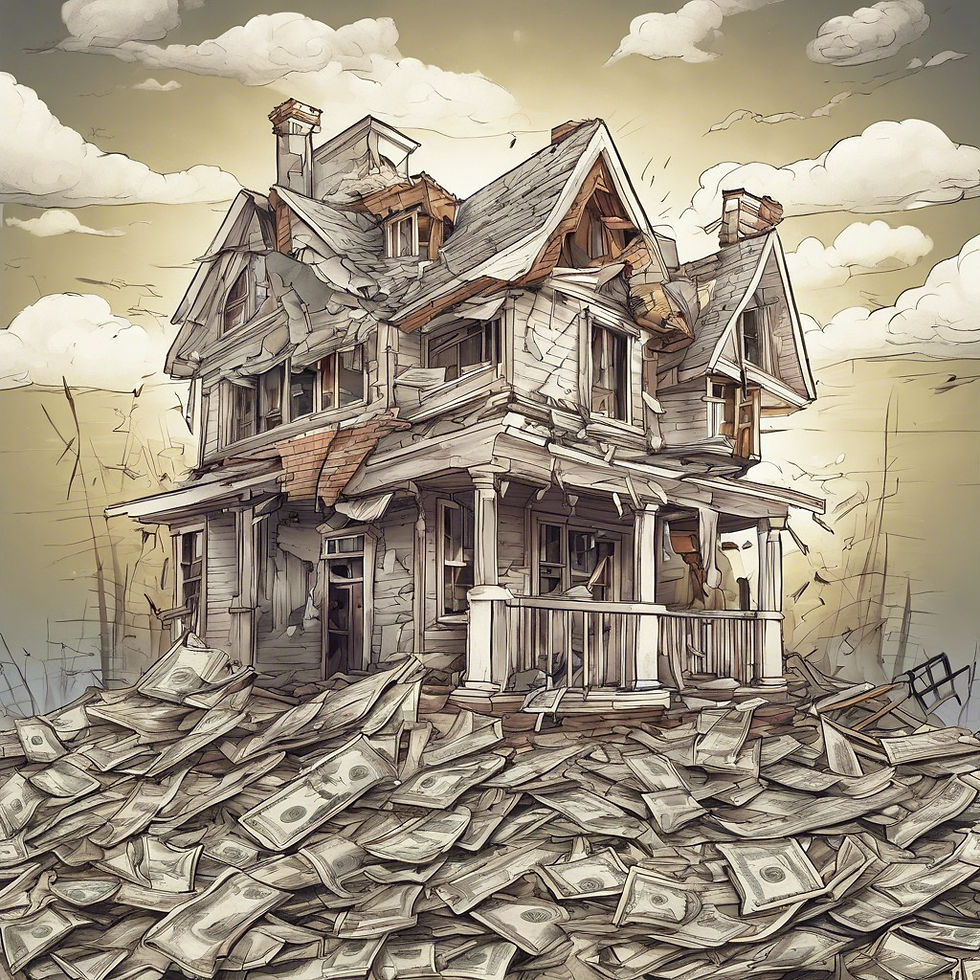The Hidden Costs of Hiring Unlicensed Contractors: A Cautionary Tale
- azbarnco
- Mar 5, 2024
- 2 min read

In the quest for home improvements and renovations, the allure of cost savings can sometimes lead us down a precarious path—the hiring of unlicensed contractors. While it may seem like an appealing option initially, the long-term repercussions far outweigh the immediate benefits. Drawing from a wealth of research, this article aims to shed light on the myriad risks associated with such decisions, particularly highlighting findings that, although not specifically quantified for Arizona, paint a stark picture of the broader implications.
The Compromise on Quality
The pursuit of excellence in home improvements begins with the foundation of quality workmanship. Arditi & Mochtar's (2000) research underscores a fundamental risk associated with unlicensed contractors: substandard work. The failure to adhere to local building codes and standards is not just a minor hiccup—it's a pitfall that can lead to significant additional expenses. Homeowners may find themselves funneling more resources into repairs or corrections to ensure compliance, a scenario that could have been avoided through the employment of licensed professionals.
Legal and Financial Entanglements
The legal and financial implications of engaging unlicensed contractors are profound. Vandenheuvel & Wooden (1997) highlight a particularly troubling aspect: homeowners may find themselves embroiled in unexpected liabilities if these contractors fail to pay their subcontractors, or worse, if injuries occur on-site. The shadow of potential lawsuits and the financial burdens they entail can cast a long pall over what was meant to be an exciting home improvement project.
Delays and Inefficiencies: The Cost Multipliers
Inefficiency and delays are synonymous with lost time and money. Bazelon's (2008) findings illuminate how unlicensed contractors' lack of experience or disregard for project timelines exacerbates these issues. The resultant delays not only extend the construction period but also inflate costs, further eroding the initial allure of saving money.
Warranty and Insurance Woes
A lesser-known but equally critical repercussion of employing unlicensed contractors is the voiding of warranties and the potential for insurance nightmares. Zhu & Berry (2018) caution homeowners about the dire consequences of voided warranties on materials or finished work, compounded by the likelihood that homeowners' insurance policies may not cover damages resultant from unlicensed work. The financial ramifications here can be substantial, leading to significant out-of-pocket expenses.
The Impact on Property Values
Perhaps one of the most enduring impacts of choosing unlicensed contractors is on the property's value itself. Research by Qiu, Wang, & Wang (2017) on the installation of solar energy systems in Arizona illustrates a broader point: improvements made by licensed contractors can significantly enhance a home's resale value. Conversely, substandard work and non-compliance with building codes can severely detriment property values, underscoring the false economy of hiring unlicensed individuals.
Conclusion: A Call for Prudence
The initial cost savings offered by unlicensed contractors are a mirage that quickly dissipates under the harsh light of potential legal issues, increased expenses, and compromised work quality. Homeowners, particularly those in Arizona, face unique challenges and opportunities in property development, making the choice of licensed and reputable contractors paramount. This decision is not just a financial one—it's an investment in the safety, legality, and value of one's home. The evidence is clear: the risks associated with unlicensed contractors far outweigh any perceived benefits, making their employment a gamble not worth taking.
Comments